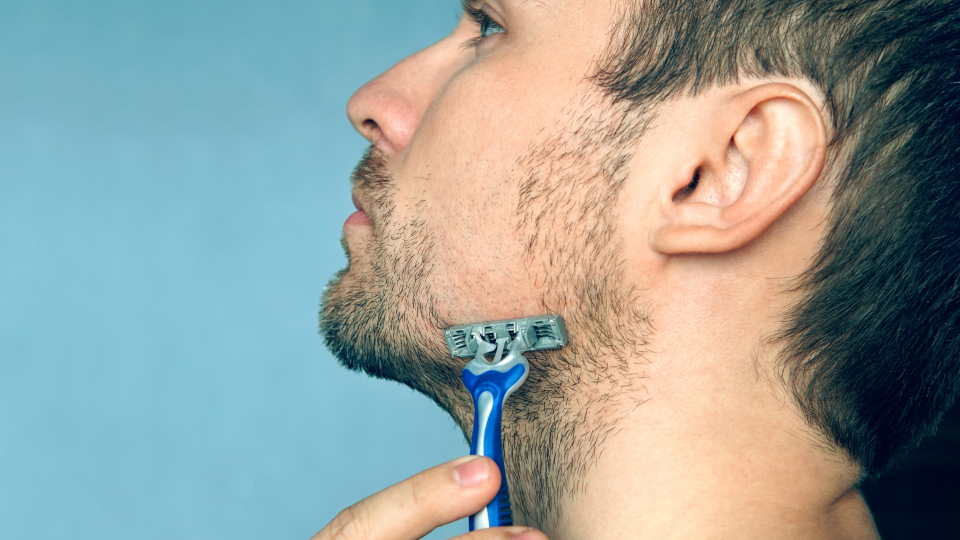Hello and welcome to our blog! Today, we’re going to talk about a topic that many of us struggle with – work-life balance. In today’s fast-paced world, it’s easy to get caught up in the daily grind and forget about the importance of taking care of ourselves both physically and mentally.
But the truth is, taking care of ourselves is crucial to our overall well-being and happiness. And while the idea of finding a work-life balance may seem daunting, it’s not impossible. With the right mindset and some simple changes to our daily routine, we can achieve a healthy balance that allows us to thrive both at work and in our personal lives.
In this blog post, which is the third part of a series “Balancing Work and Personal Life”, we’ll explore 10 ways to achieve a better work-life balance. From making time for exercise to practicing self-compassion, we’ll give you practical tips and advice that you can start incorporating into your daily routine right away. We’ll also share personal stories and anecdotes to help you connect with the content and see how others have struggled with work-life balance – and ultimately found success.
So, whether you’re a busy professional or a stay-at-home mom, this post is for you. We’re here to support you on your journey to finding a healthy balance and living your best life. Just before we put the pedal to the metal, you may wanna check out the second part here and first part here.
Make Time for Exercise
It can be challenging to find time for exercise when work and personal responsibilities take up most of your day. However, making time for exercise is essential to maintaining a healthy work-life balance.
Research has shown that exercise helps reduce stress levels, improves mood, boosts energy, and enhances cognitive function. All of which can lead to increased productivity and overall well-being.
Here are some tips for making time for exercise:
- Schedule it in: Just as you would schedule a meeting or appointment, schedule time for exercise in your calendar. This will make it a priority and help ensure that other tasks and responsibilities don’t interfere with your workout time.
- Find a fitness buddy: Exercising with a friend or colleague can make it more enjoyable and increase accountability. Plus, it’s a great way to connect with others while getting in shape.
- Take advantage of your lunch break: Use your lunch break to take a walk, go for a run, or hit the gym. This can be a great way to break up the workday and reset for the afternoon.
It’s important to remember that exercise doesn’t have to be a high-intensity workout. A brisk walk or jog, yoga class, or even a few minutes of stretching can all be beneficial. The key is to find an activity that you enjoy and that fits into your schedule.
Make exercise a priority in your life, and you’ll soon see the benefits both in your personal life and in your work. Take care of yourself, and you’ll be better equipped to take care of your responsibilities as well.
So, make sure you find the right balance and give yourself the gift of a healthy and happy life.
Practice Mindfulness
Do you ever feel like your mind is constantly racing and you can’t seem to focus on one thing at a time? With work, personal life, and everything in between, it’s no wonder we often feel overwhelmed and burnt out. But what if there was a simple solution to help you feel more present, calm and focused? That’s where mindfulness comes in.
Mindfulness is the practice of being present and fully engaged in the current moment, without judgement or distraction. It involves paying attention to your thoughts, emotions and bodily sensations, and accepting them without getting caught up in them.
So, how can practicing mindfulness help improve your work-life balance?
- Reduces stress: Mindfulness can help you become more aware of when you’re feeling stressed or overwhelmed, allowing you to take a step back and refocus your energy. It can also help you build resilience to stress over time, making it less impactful in the long run.
- Improves focus: By training your brain to stay present and focused on the task at hand, mindfulness can improve your ability to concentrate and be more productive in both your personal and work life.
- Enhances creativity: When you’re not getting bogged down by distractions and negative thoughts, you free up mental space to be more creative and innovative in your work and personal life.
Here are some tips to practice mindfulness:
- Meditation: Find a quiet space where you can sit or lie down comfortably and focus on your breath, noticing when your thoughts wander and gently bringing them back to your breath. Try to do this for at least 5-10 minutes a day.
- Awareness: Beginning your day with awareness of your thoughts, emotions, and sensations can help you stay grounded throughout the day. You can practice this by taking a few deep breaths and checking in with yourself before starting your day.
- Engage your senses: Paying attention to the sights, smells, sounds, tastes, and feelings around you can help you become more aware and present in the current moment.
While practicing mindfulness may seem like just another task to add to your to-do list, the benefits of incorporating it into your daily routine can help you feel more balanced and present in both your work and personal life. Remember, it’s not about being perfect, but about being aware of the present moment with curiosity and kindness towards yourself.
So take a deep breath, tune in to the present moment, and start practicing mindfulness today.
Get Enough Sleep
Are you somebody who loves burning the midnight oil? You’re not the only one. Many people have convinced themselves that getting a full night’s sleep is a luxury they simply can’t afford. However, the truth is that sleep is just as important for good mental and physical health as proper nutrition or exercise. Here are some tips on how you can make sure you get enough sleep:
Firstly, try to establish a regular sleep schedule. Go to bed and wake up at the same time every day, even on weekends. This will help regulate your body’s internal clock and make it easier to fall asleep at night. Remember that it’s not just the quantity, but also the quality of your sleep that matters. Aim for at least seven to nine hours of uninterrupted sleep every night.
- Tip: Try out a sleep tracker app or device to monitor your sleep quality and track how long you sleep.
- Tip: Avoid drinking caffeinated beverages, consuming alcohol, or smoking before bedtime. All of these substances can interfere with your sleep quality.
Creating a relaxing bedtime routine can also help you fall asleep faster and stay asleep longer. Try taking a warm bath, listening to calming music, podcast, audiobook, or reading a book before you go to bed. Remember to turn off electronic devices at least an hour before bedtime, as the blue light emitted by electronic screens can interfere with the production of melatonin, the hormone that regulates sleep.
| Food to Avoid Before Bedtime | Food to Try Before Bedtime |
|---|---|
| Spicy food | Bananas |
| Greasy or heavy meals | Warm milk |
| Dark chocolate | Chamomile tea |
| Sugar | Tart cherry juice |
If you’re finding it difficult to sleep, don’t toss and turn in frustration. Rather, try getting up and doing something else for a while. Go to another room and read a book, listen to some music, or do some light stretching. Once you feel drowsy, head back to bed and try again. The worst thing you can do is lie in bed awake and stressed.
Getting enough sleep is crucial for productivity, emotional wellbeing, and physical health. Make it a priority in your life and you’ll find that everything else improves alongside it. Sweet dreams!
Prioritize Nutrition
When it comes to balancing work and personal life, one area that often gets neglected is nutrition. We get so caught up in our busy schedules that we forget to pay attention to what we’re eating. But prioritizing nutrition is crucial for our overall health and well-being.
First and foremost, it’s important to eat a balanced diet that consists of all the necessary nutrients. This means eating plenty of fruits, vegetables, whole grains, and lean proteins. It’s also important to limit processed and sugary foods, as these can have negative effects on our health.
- Make sure to have a good breakfast every morning. This will help give you energy for the day ahead.
- Plan your meals in advance, so you’re not scrambling to find something to eat when you’re busy.
- Take healthy snacks with you on the go, such as fruit or nuts, so you’re not tempted to grab something unhealthy when you’re out and about.
Another important aspect of nutrition is staying hydrated. Make sure you’re drinking plenty of water throughout the day, especially if you’re working in an office or another environment where you may not be getting up and moving around as much.
When it comes to work, it’s important to practice good nutrition habits there as well. This can mean packing a healthy lunch instead of relying on fast food or vending machines, or bringing healthy snacks to keep at your desk.
Finally, don’t forget about the importance of moderation. It’s okay to indulge in your favorite treats every once in a while, but make sure you’re not overdoing it.
Prioritizing nutrition may seem like just another thing to add to your to-do list, but making healthy choices can actually make you feel more energized and productive. Remember to take care of yourself, both physically and mentally, and you’ll be well on your way to achieving a healthy work-life balance.
Engage in Hobbies
Do you ever feel like you’re constantly working and have little time for anything else? It’s important to prioritize your work-life balance and make time for hobbies. Engaging in hobbies can improve your mental wellbeing and provide a much-needed break from work. Here are some tips on how to engage in hobbies and find a balance between work and personal life.
Find a hobby that you’re passionate about
When it comes to hobbies, finding something that you’re passionate about is key. This can be anything from playing an instrument to painting to hiking. When you engage in activities that you’re passionate about, you’re more likely to feel fulfilled and less stressed.
Schedule time for your hobby
It can be easy to put off hobbies when work takes up so much of your time. However, it’s important to prioritize your hobby and schedule time for it. Set aside specific days or times during the week to engage in your hobby. This will not only give you something to look forward to, but it will also help you stick to a routine.
Use your hobby as a way to connect with others
Hobbies are a great way to meet new people or bond with people you already know. Join a group or club that aligns with your hobby to connect with others who share your interests. This can also provide a break from work and allow you to socialize in a non-work setting.
Take a break from screens
In today’s digital age, it’s easy to spend all of our free time in front of a screen. Engaging in a hobby that doesn’t involve screens can be a refreshing change. Whether it’s reading a book or going for a walk, taking a break from screens can help reduce stress and improve your mental wellbeing.
Remember that your hobby doesn’t have to be perfect
It’s important to remember that your hobby is meant to be a break from work and a way to have fun. Don’t put too much pressure on yourself to be perfect or produce something amazing. Instead, focus on enjoying the process and the experience.
Engaging in a hobby is an important part of achieving work-life balance. Remember to prioritize your hobby, schedule time for it, use it as a way to connect with others, take a break from screens, and enjoy the process. By doing so, you’re more likely to feel fulfilled and less stressed.
Set Boundaries
When it comes to achieving a healthy work-life balance, one key factor is setting boundaries. This means knowing when to disconnect from work and prioritize your personal life. With technology making it easier than ever to stay connected 24/7, it can be tempting to constantly check emails or respond to work-related messages. However, failing to set boundaries can lead to burnout, stress, and an overall lack of fulfillment. In this post, we’ll explore how to set boundaries and why it’s so important.
First and foremost, setting boundaries means clearly defining work hours and sticking to them. This means not checking emails or responding to work messages outside of those hours, unless it’s an absolute emergency. It also means setting realistic expectations with your boss and colleagues about when you’re available and when you’re not. By doing so, you can avoid feeling like you’re always “on call” and unable to fully disconnect from work.
Another way to set boundaries is to prioritize your personal life. This means scheduling downtime for yourself, whether it’s going to the gym to do fitness, reading a book, or spending time with loved ones. When you prioritize personal activities, you’re sending a message to yourself and others that your personal time is just as important as your work time. It can also help to create a physical boundary between work and personal life, such as turning off your phone or setting a designated workspace.
- Create a list of activities that you enjoy and that help you relax, and prioritize them in your schedule.
- Set a specific time each day to stop working and begin your personal activities.
- Learn to say “no” when necessary, whether it’s to taking on more work or attending after-hour meetings.
By setting boundaries, you’re not only protecting your own well-being, but you’re also setting a positive example for those around you. It can be challenging at first, especially if you’re used to always being available for work, but it’s important to remember that you have the power to make a change. By prioritizing your personal life and setting boundaries, you can achieve a healthier work-life balance and ultimately feel more fulfilled in all areas of your life.
Remember, it’s okay to take a break and disconnect from work. By setting boundaries, you can create a more fulfilling and balanced life for yourself. So, take some time to evaluate your current work-life balance and work towards setting clear boundaries. Your mental health and overall well-being will thank you.
Seek Support
When it comes to work-life balance, seeking support is one of the most important things you can do. It’s easy to get overwhelmed or burnt out when trying to balance the demands of work and personal life all by yourself. Asking for help or support can make all the difference.
One way to seek support is to talk to your manager or supervisor. If your workload is unmanageable, it’s important to communicate this to your supervisor so they can help you prioritize or delegate tasks. If you need time off to attend to personal matters, make sure to request this in a timely manner and be transparent about why you need the time off.
Another way to seek support is to reach out to colleagues, family, or friends. Sometimes just talking through an issue or challenge with someone else can provide clarity and perspective. You may also be able to find someone who can offer practical assistance or advice.
| Benefits of seeking support: | Examples: |
|---|---|
| Reduced stress and anxiety levels | Speaking to a colleague about a difficult project |
| Increased productivity and creativity | Brainstorming ideas with a friend |
| Improved relationships and communication | Talking to a partner about conflicting schedules |
Finally, you may want to consider seeking support from a professional. This could mean talking to a therapist or counselor about work-related stress or personal issues that are impacting your ability to balance work and personal life. Alternatively, a coach or mentor could help you develop strategies and skills for improving your work-life balance.
It’s important to recognize that seeking support is not a sign of weakness or incompetence. In fact, it takes strength and self-awareness to recognize when you need help and to reach out for it. So, don’t be afraid to ask for support when you need it.
Conclusion
After discussing various ways to maintain a work-life balance, it is important to conclude with a few key takeaways:
Firstly, self-care should always be a top priority. It is impossible to maintain a balance between work and personal life without taking care of oneself. This can include exercise, proper nutrition, getting enough sleep, and engaging in hobbies.
Secondly, setting boundaries is crucial. It is important to know when to say no and prioritize one’s own needs. This can mean not taking on too much work or taking time off to spend with loved ones.
Thirdly, practicing mindfulness and self-compassion can go a long way. By being present in the moment and showing oneself kindness and understanding, one can reduce stress and improve their overall well-being.
- Take time to reflect on personal values and priorities
- Recognize when work is causing excessive stress and take steps to address it
- Communicate openly with colleagues and loved ones about needs and boundaries
- Be willing to make adjustments and changes as needed
It is possible to achieve a balance between work and personal life, but it requires effort and intentionality. By prioritizing self-care, setting boundaries, and practicing mindfulness and self-compassion, individuals can lead a more fulfilling and balanced life.

















